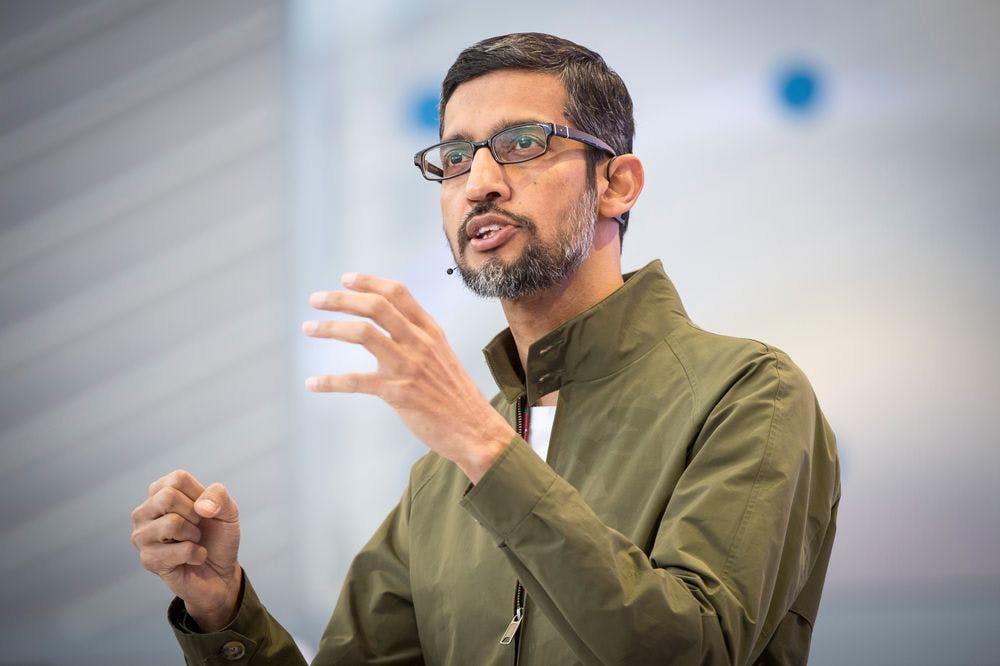
Best Appliances in Australia for 2025
Choosing appliances for your home is about so much more than ticking a box for function. It’s about selecting products that suit your lifestyle, offer long lasting reliability, and bring refined[...]

This week’s 2018 Google I/O event showcased the new Google Assistant technology that is more natural and personal than ever.
The technology has been apart of a two year vision to provide progressive technology for people all over the world. The assistive device features voice technology that aims to alleviate errors in computerised conversation that often accompanies current technologies in this field.
The technology known as, Google Duplex, is an extension of the Google Assistant and is available to people all over the world on over 500 million devices. The assistive technology will feature more than 30 languages and be available in over 80 countries by the end of the year.
However, what’s most impressive about the Duplex technology is its ability to engage in natural ‘real life’ conversations in the bid to improve interactions with users and businesses.
Common frustrations surrounding computerised conversations can be accredited to the natural pauses, inferred meanings, interruptions and errors in human speech that computer technology is unable to pick up on or reciprocate. In an age of state-of-the-art technology that surrounds most homes and business, Google has recognised this lack of connection and the need to improve human-computer interactions.
The new Duplex technology will enable conversations that will sound natural thanks to advances in “understanding, interacting, timing, and speaking.”
Built using TensorFlow Extended (TFX), the Duplex system is designed to cope with the challenges of natural speech as a recurrent neural network (RNN).
The technology is built to complete specific tasks such as scheduling appointments. For such tasks the conversational experience must flow as natural as possible in order to avoid the person receiving the call having to adapt their conversation to speak to a machine.
“We trained Duplex’s RNN on a corpus of anonymised phone conversation data. The network uses the output of Google’s automatic speech recognition technology, as well as features from the audio, the history of the conversation, the parameters of the conversation and more.” Says Google.
Aspects of the technology that improve the ‘natural’ conversation include the use of “umms” and “hmms” to mimic human speech.
Whilst Google inspires excitement around the technology, critics have taken to Twitter to express their concerns.
This sounds right. The synthetic voice of synthetic intelligence should sound synthetic.
Successful spoofing of any kind destroys trust.
When trust is gone, what remains becomes vicious fast. https://t.co/pnh2y45Z6k
— Stewart Brand (@stewartbrand) May 9, 2018
Google Assistant making calls pretending to be human not only without disclosing that it's a bot, but adding "ummm" and "aaah" to deceive the human on the other end with the room cheering it… horrifying. Silicon Valley is ethically lost, rudderless and has not learned a thing.
— zeynep tufekci (@zeynep) May 9, 2018
Keep up to date with Australia Business News!

Choosing appliances for your home is about so much more than ticking a box for function. It’s about selecting products that suit your lifestyle, offer long lasting reliability, and bring refined[...]

An Australian navy vessel has inadvertently caused widespread disruption to internet and radio services across parts of New Zealand’s North and South Islands this week. The incident happened early[...]

When it comes to sourcing premium quality meats, not all butchers are created equal. We’ve reviewed some of the most popular and highly regarded butcheries Sydney-wide, assessing them on product[...]

When it comes to choosing fine jewellery, not all jewellers are created equal. From exquisite engagement rings to rare timepieces and one of a kind bespoke creations, Sydney’s luxury jewellery[...]